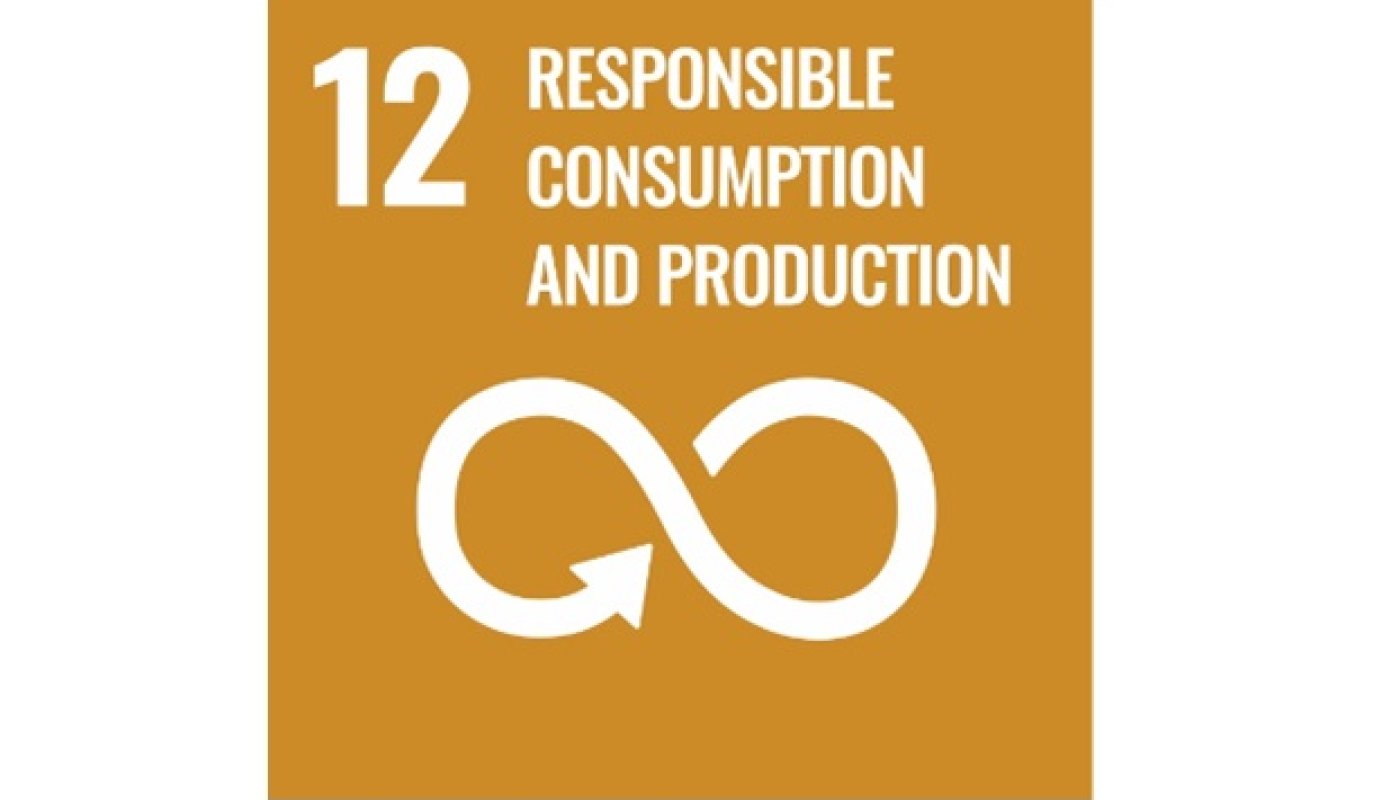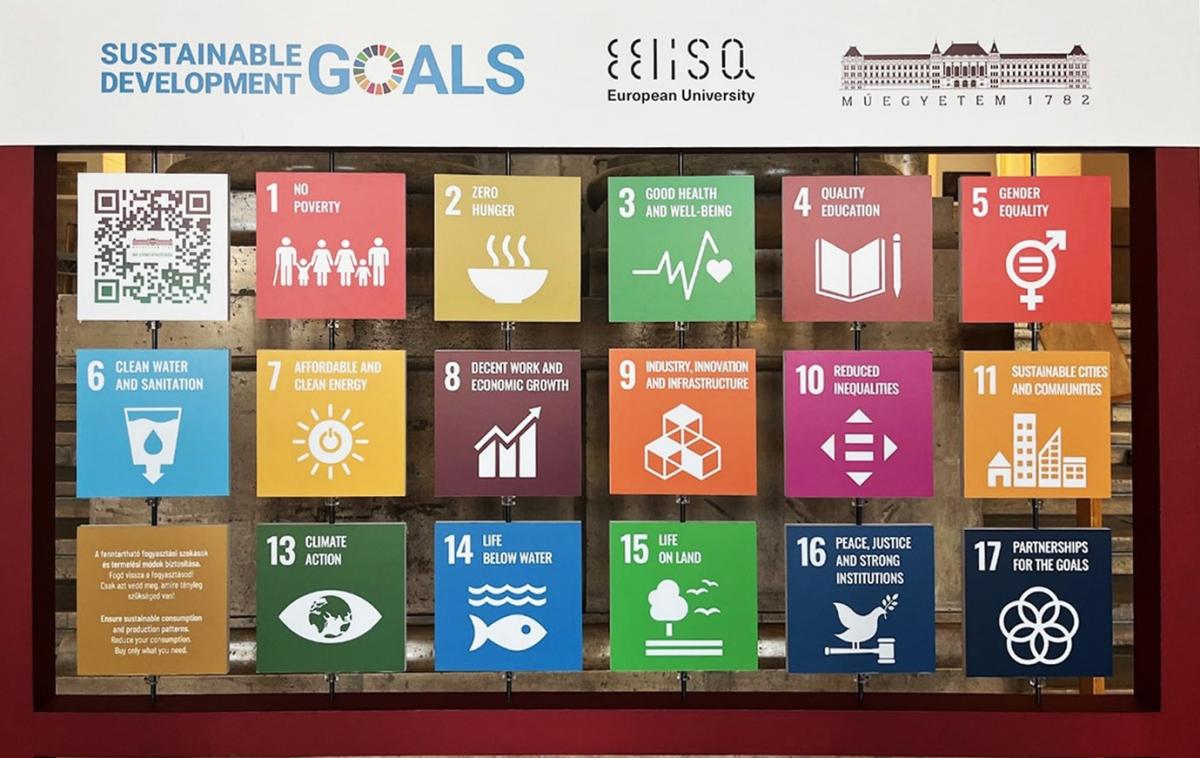News feed
17 goals for a better world – 12. Responsible consumption and production
2024. 05. 28.
Our series of articles entitled “Sustainable Tuesday(s)”, will take a look over 17 weeks at the 17 Sustainable Development Goals (SDGs) set by the UN to make the world a better place.
This time, we will explore goal no. 12: Responsible consumption and production in more detail, which is to:
Ensure sustainable consumption habits and modes of production.
Put a damper on your consumption! Buy only what you really need.

Sustainable Development Goal no. 12 on responsible consumption and production is present in the everyday practice in the industry-academia cooperations that are of key importance for BME. The goals should be achieved by production and manufacturing just as much as sensitisation is needed on the consumer side. The focus of SDG no. 12 is to let sustainable consumption habits grow and to develop production methods along the same principle.
The results achieved by BME Industry 4.0 Technology Centre in the areas of smart manufacturing, automation and artificial intelligence can already be observed in a more sustainable production. The case studies of the centre focus on users as well as consumers.
Kristóf Hegedűs, doctoral student of BME Faculty of Electrical Engineering and Informatics and his partner have dreamed of a platform that would connect eco-conscious users with companies fighting for sustainability for the benefit of a greener future. Their enterprise was ranked third at MVM’s Edison Startup Contest in 2023. Beeco is a modern solution to reduce eco-anxiety through an application, available for both Android and iOS devices. Its map indicates the responsible shops and locations striving at sustainability, so the consumer may decide if they want to buy their goods from packaging-free shops and also find businesses selling sustainable products. Several similar initiatives of BME, such as the wrapping-free Christmas, the clothes-exchange events of the green organisations and food rescue campaigns also support responsible consumption.
The BME Faculty of Mechanical Engineering conducts a singular research project into solar systems and building user behaviours based on measurements and simulations. The research looks at responsible consumption through the complex aspects of energy in buildings. Several faculties are involved with sustainable production including robotics, the development and optimisation of manufacturing technologies and feedstock and the minimisation and recycling of waste. The Faculty of Polymer Engineering conducts a pilot development project of polypropylene and environmentally friendly agricultural twine with increased load-bearing capacity and environmentally friendly packaging materials to be used in health care.
The Faculty of Civil Engineering develops innovative material with low environmental impact and high recycled content in its industrial cooperation. They have launched the W-Heat startup, which produces thermal insulation material from waste straw, which is competitive with artificial materials. Several Hungarian research projects have dealt with developing concrete with recycled additives and the reduction of its environmental impact. The environmental impact of building materials and the entire building, from construction through operation to demolition, is quantified and optimised at all stages of the life cycle, contributing to a carbon-neutral built environment.
The priority of the Faculty of Chemical Technology and Biotechnology is to render the organic chemical and pharmaceutical industries sustainable. This is achieved through greening a variety of active substance production technologies, which involves renewable source materials, harmless (chlorine-free) solvents and efficient, catalytic syntheses. The environmental methods are developed as part of the industrial assignments. In addition, OTKA projects are also looking at the problem.
Research application of AI appeared at the departments of the Faculty of Electrical Engineering and Informatics almost simultaneously, which is also used in manufacturing and in the analysis of user habits apart from in R + D.
The Department of Electronics Technology has for decades represented a unique area of expertise in electronics manufacturing, and has provided a dedicated academic support for the manufacturing industry. Defect-free, quality production and reliable electronics with adequate production management address every possible environmental indicator; several projects are designed in this area (with OTKA grants and most recently the Whisfuse, jointly with ESA, in connection with the reliability of space electronics). The department’s research projects are closely connected to the problems dealt with by large, mass-producing companies in Europe. The Department of Electronic Devices conducts experimental developments and applied research introducing digital twins in the responsible manufacturing of semi-conductor lighting technology. In addition, the department conducts research into digital analysis of power electronics applications, both on the production side and the consumption side of low power electronics.
The Faculty of Natural Sciences carries out extensive research in the field of energy, focusing on the conscious balancing of sustainably and conventionally produced energy and consumption. An important result is that the unfolding e-mobility revolution, unforeseen a few years ago, and the emergence of small-scale household power plants and storage capacities are having a significant impact on energy management at the systemic level. The faculty researchers contribute their basic research to the development of novel solar cells.
The education and research areas of the Faculty of Economics (GTK) are closely connected to the subjects of sustainable and responsible consumption and production. Student and teacher scholarships promote the learning of up-to-date scientific knowledge and practical skills under the MNB-BME cooperation, while OTKA programs and Bolyai scholarships also devote special attention to the subject. Almost 40, among them several elective courses at GTK are connected to the sustainability goal, thus helping to raise and shape awareness of the subject among students of engineering
Subjects on industrial technologies, environmental and product management, production planning and environmental economics courses provide students with the opportunity to learn about responsible consumption and production at BME. Looking at the statistics of the past years, 26 publications, 4 research projects, 118 student projects and 56 subjects taught at almost every faculty indicate BME's commitment to the sustainability goal of responsible consumption and production.
The term SDG stands for the 17 Sustainable Development Goals established by world leaders at the 2015 UN summit to set new directions for global development. In a series of articles called “Sustainable Tuesday(s”, we will take a look at the 17 Sustainable Development Goals (SDGs) over 17 weeks and show what BME is doing to achieve them, within its own means. You can check out these development goals in a playful way with the help of boards placed at the entrances of the 3 busiest buildings (E, K, Q) on the BME campus. For more information on this topic, you can join the BME GreenHub Facebook group and visit BME’s main website to access our BME for Sustainability platform |
GA, KK (BME Committee on Sustainability)
